SPEAKING AS THEN
by Ruoxin Xu
Columbia University, School of the Arts
Second-Year MFA Playwriting Project
Schapiro Theater
March 16 - March 18, 2018
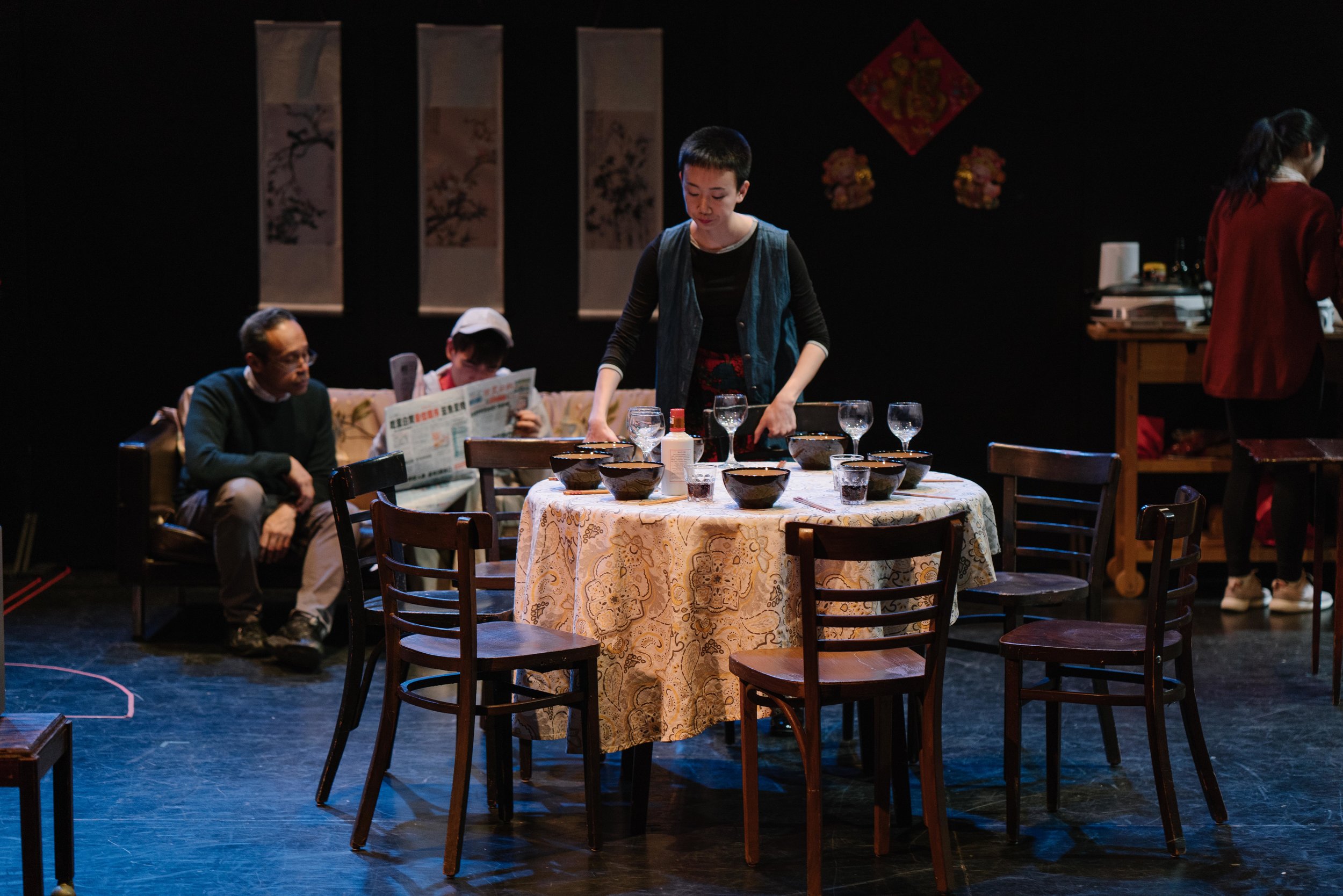
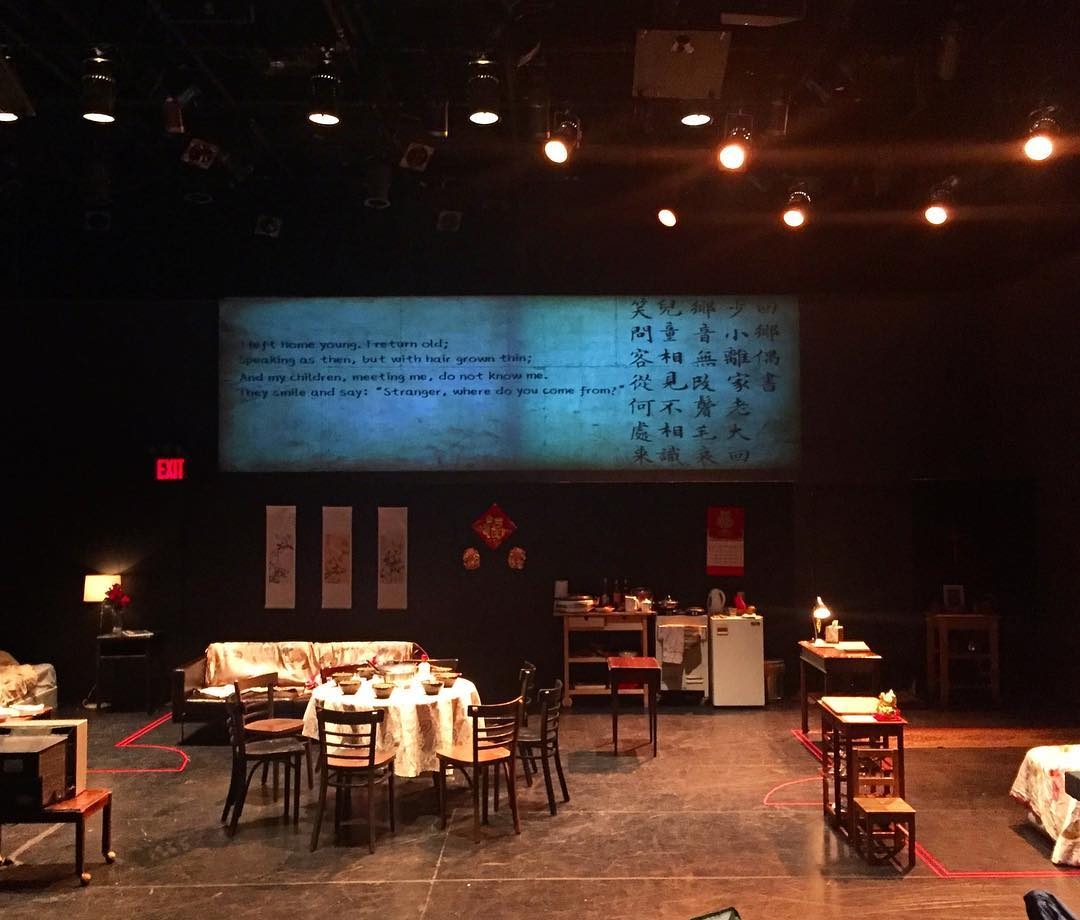
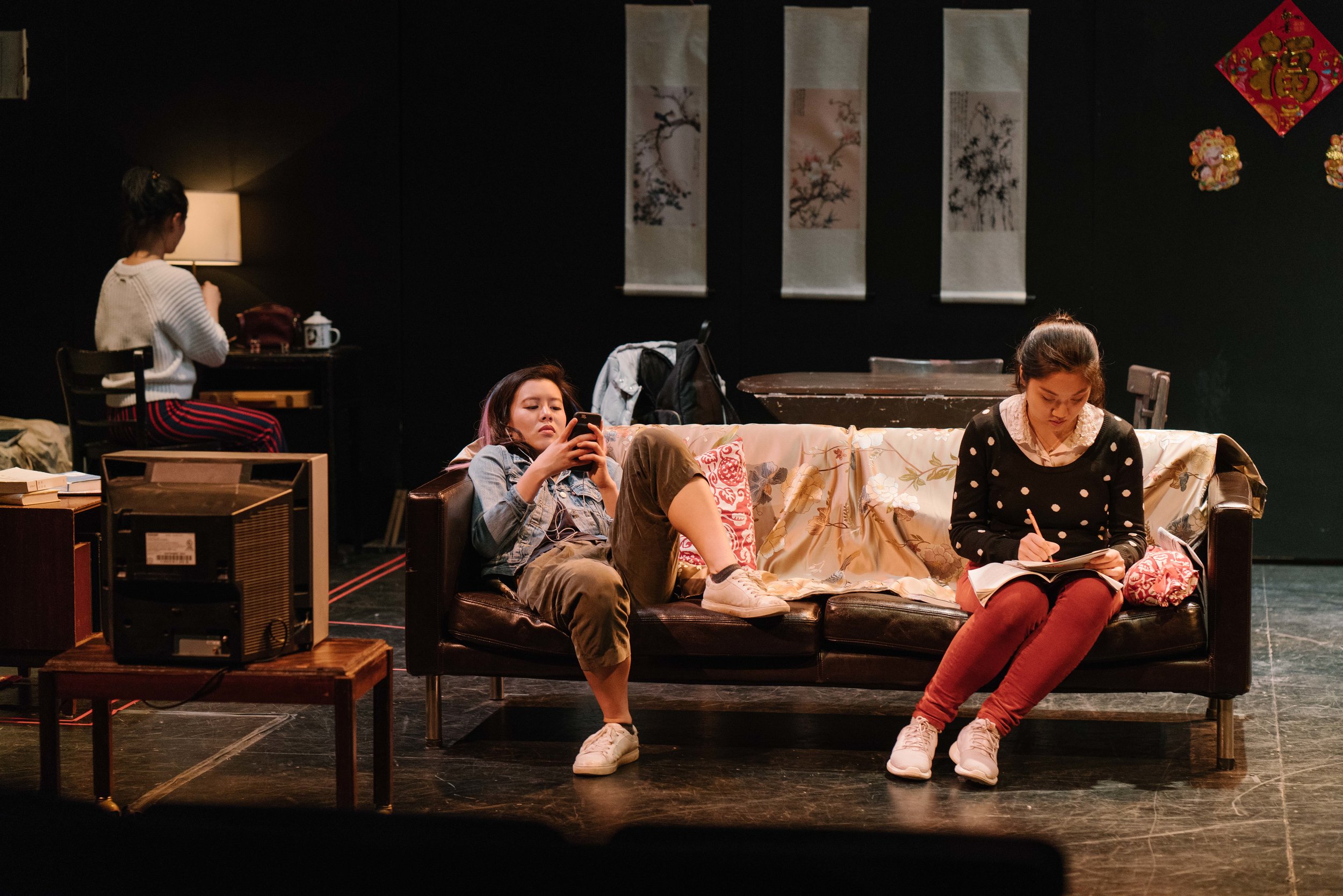
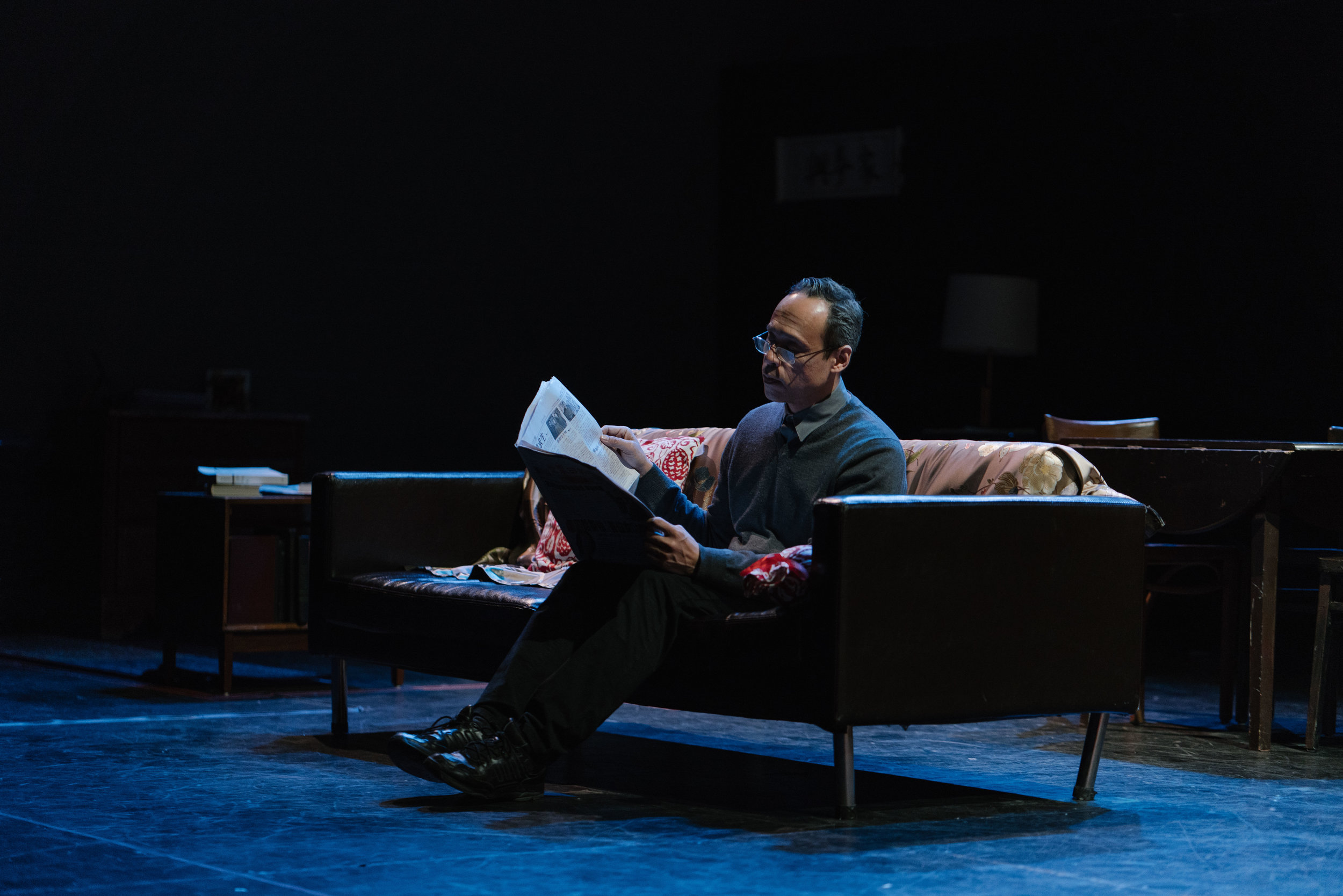
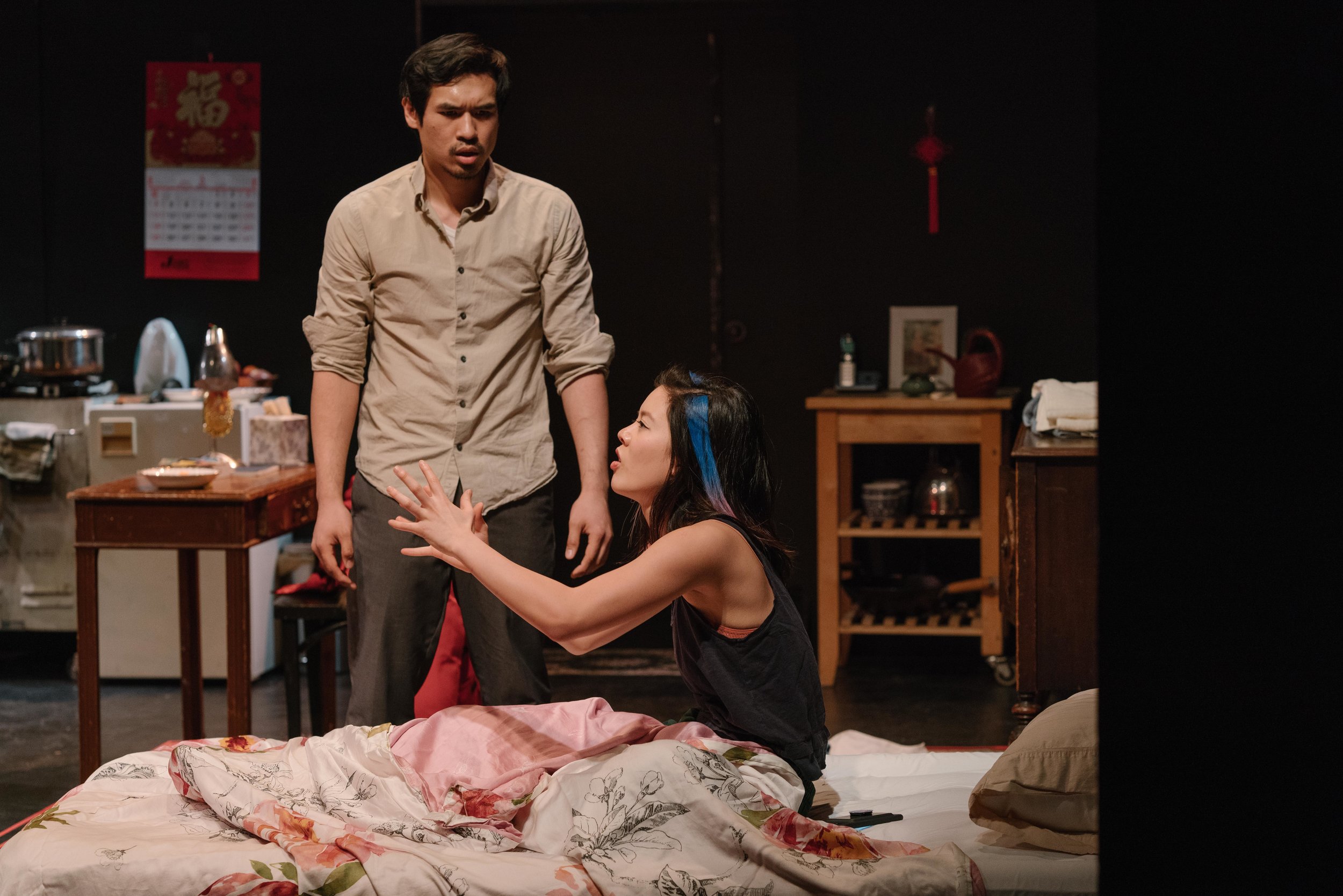
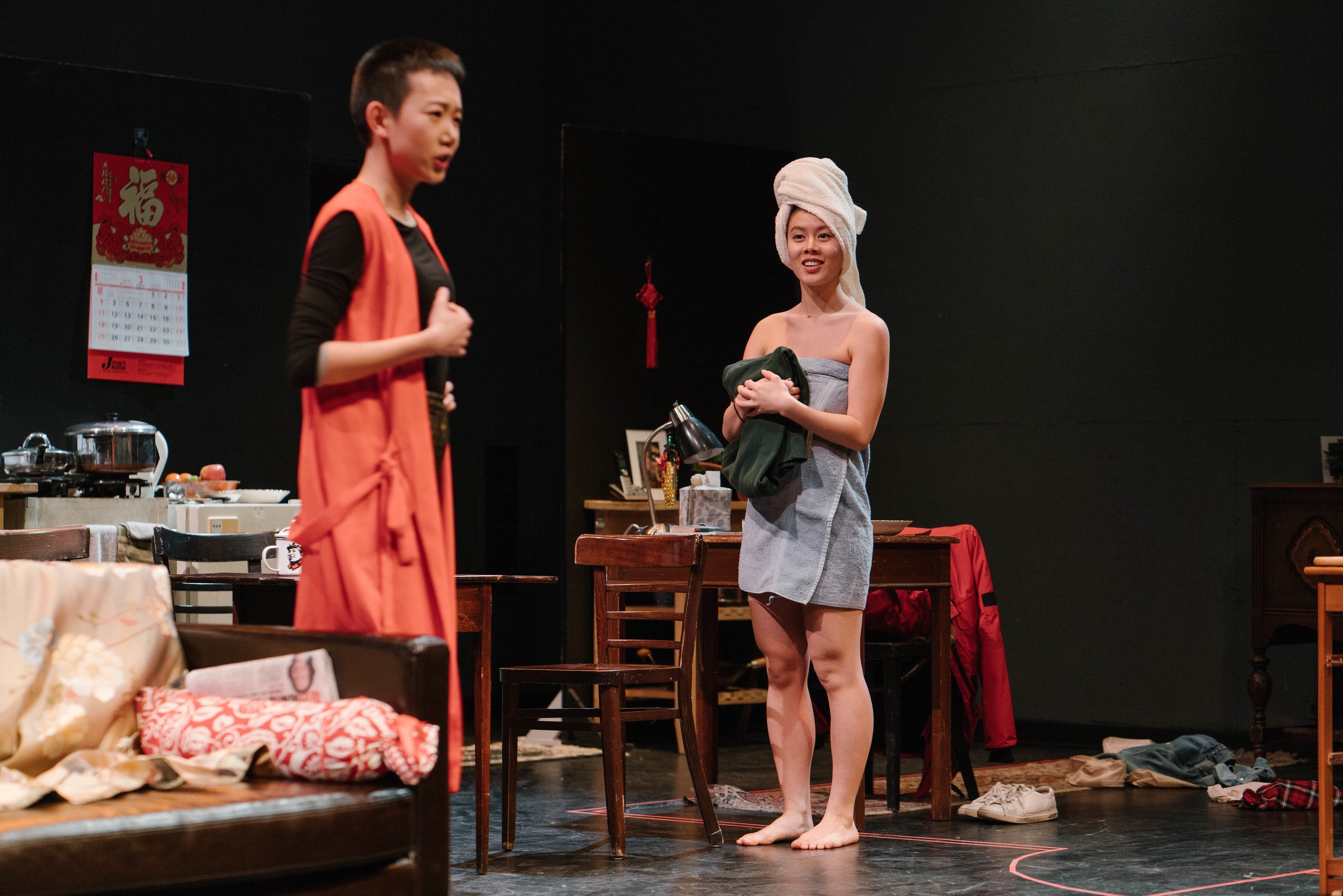
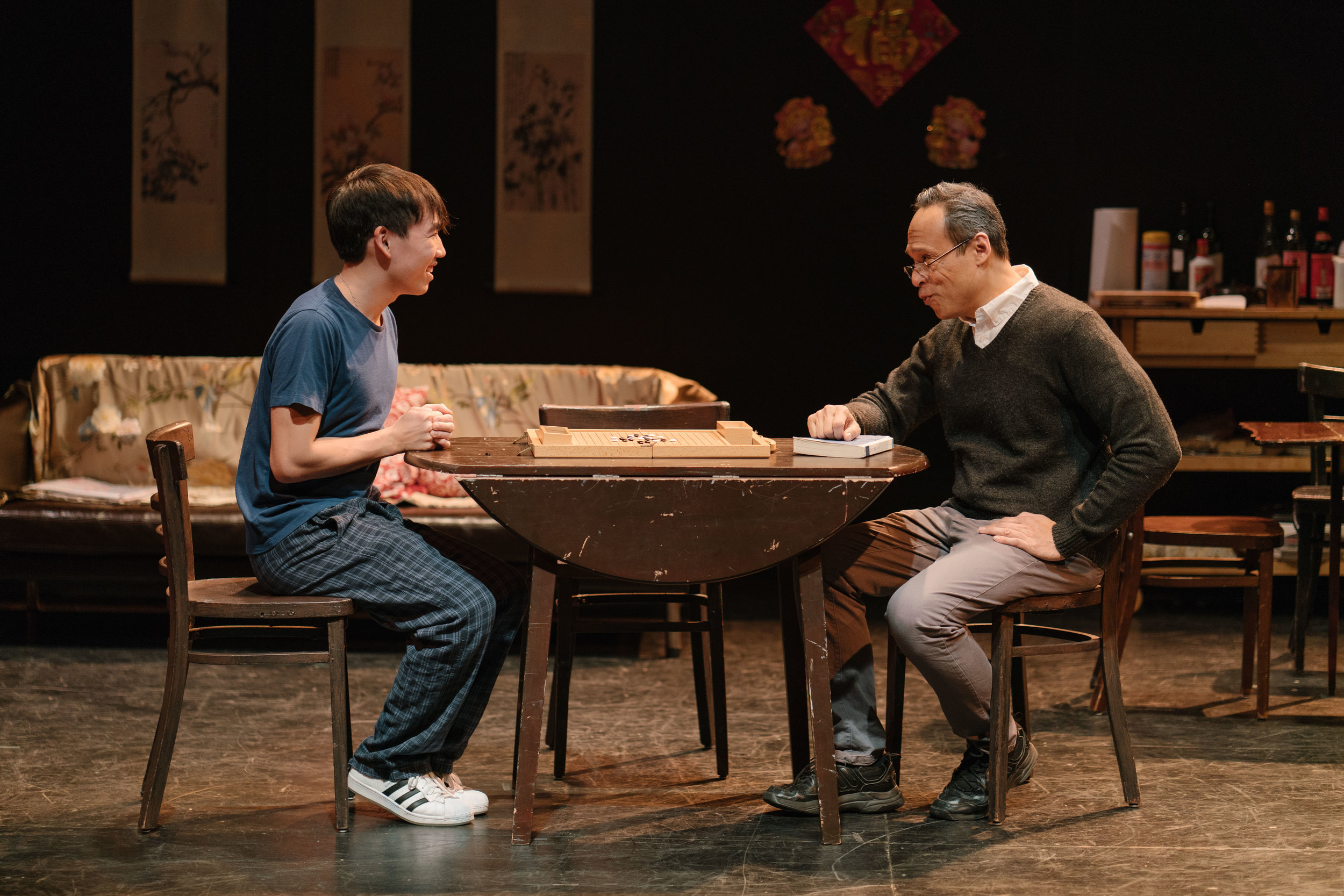
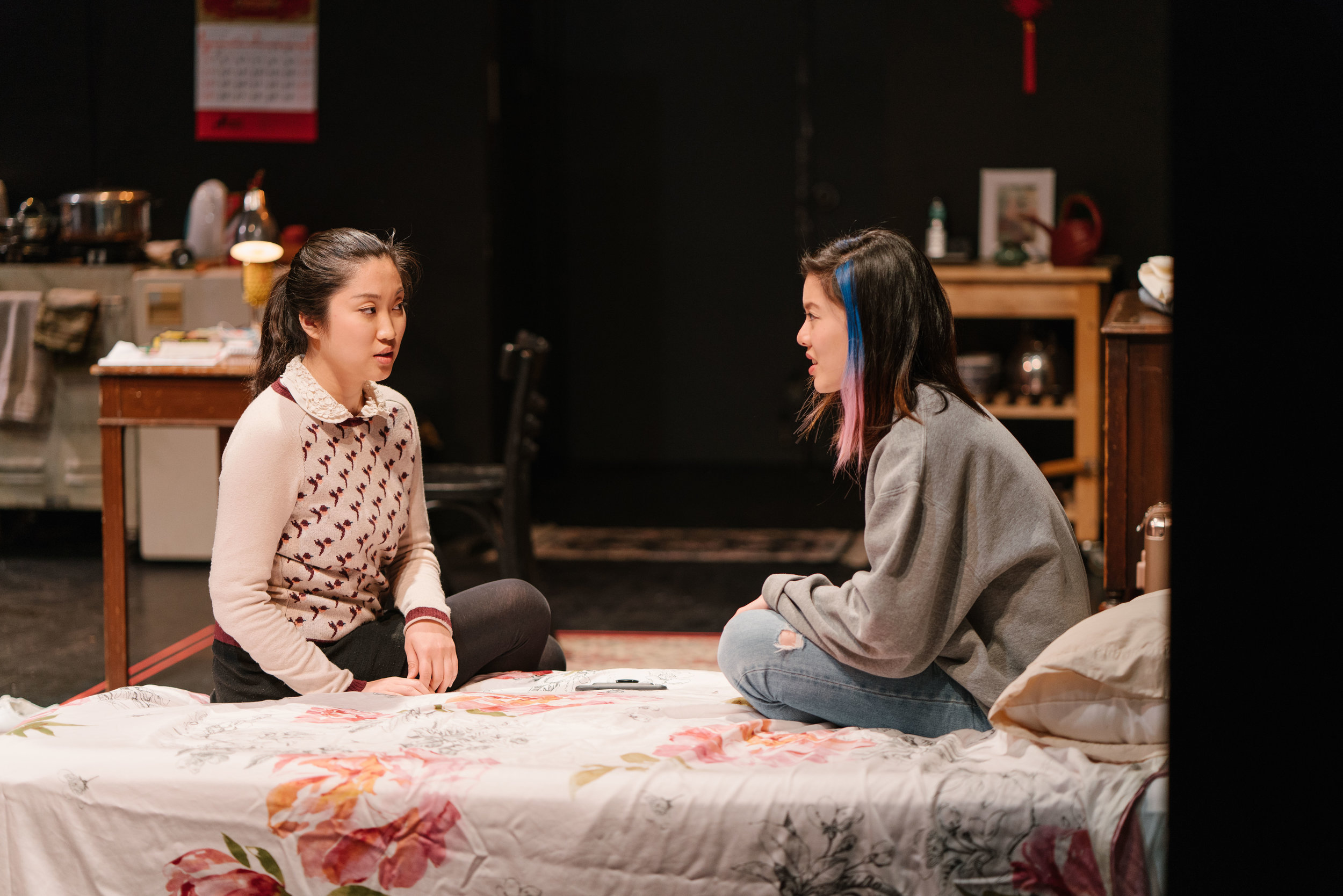

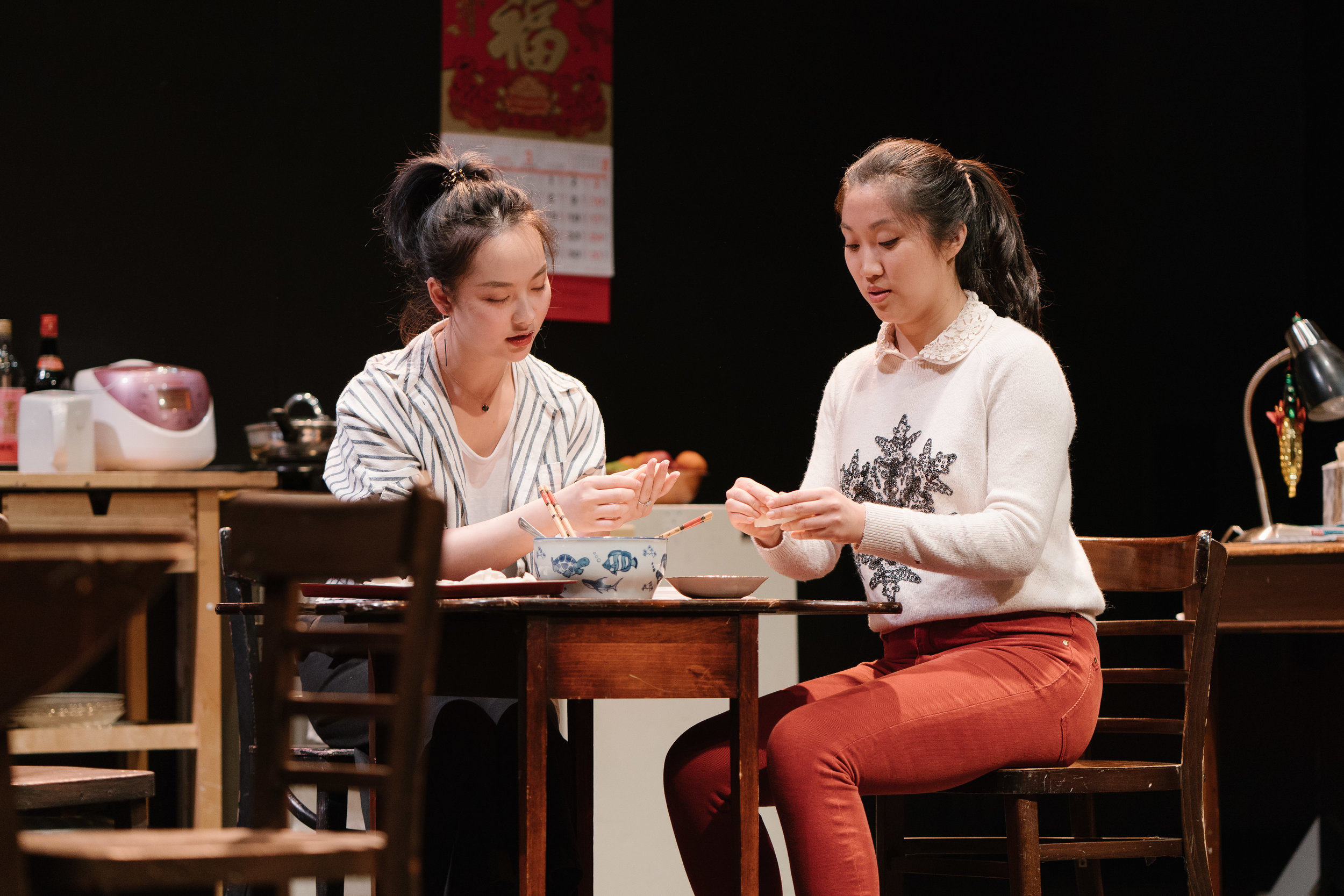
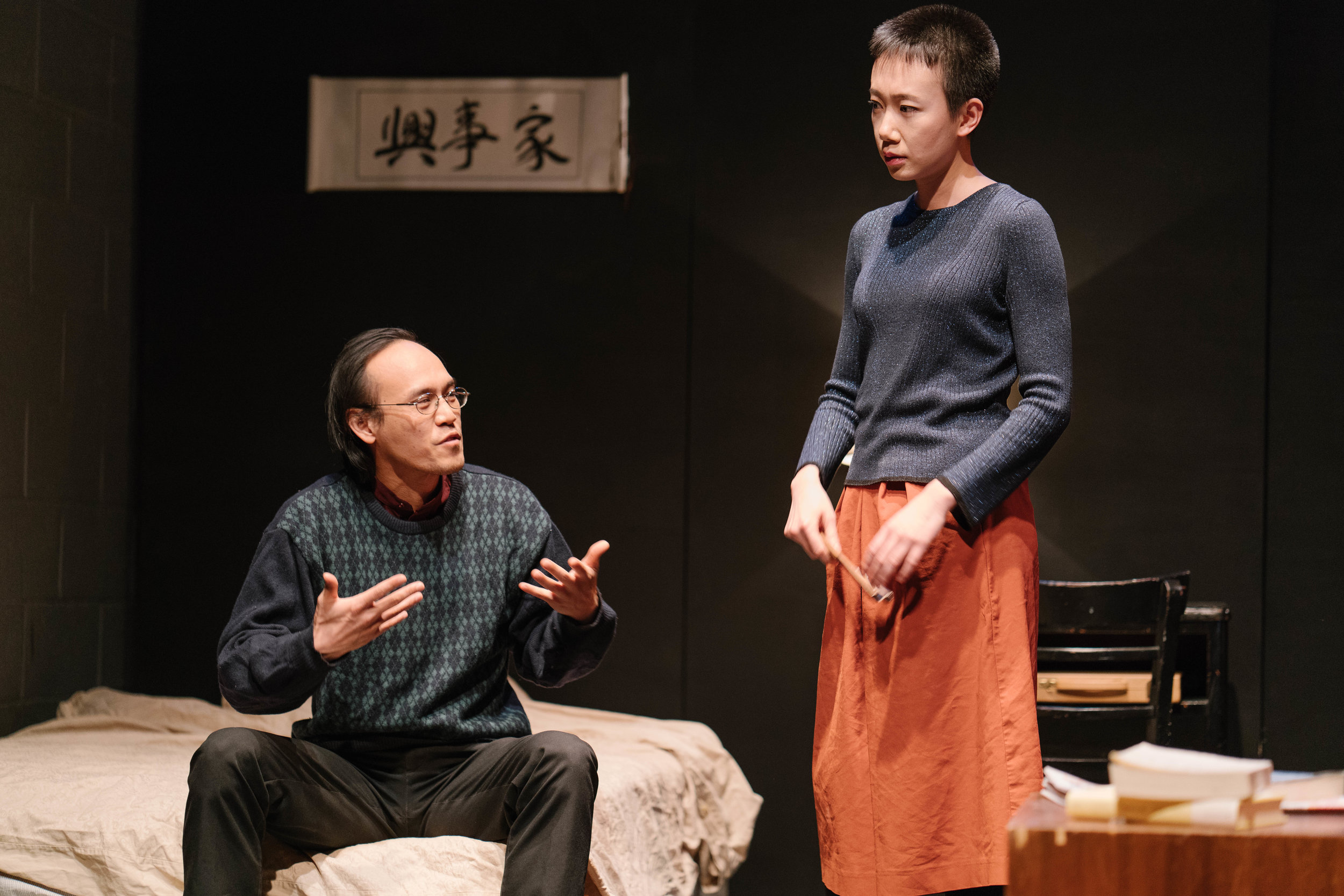
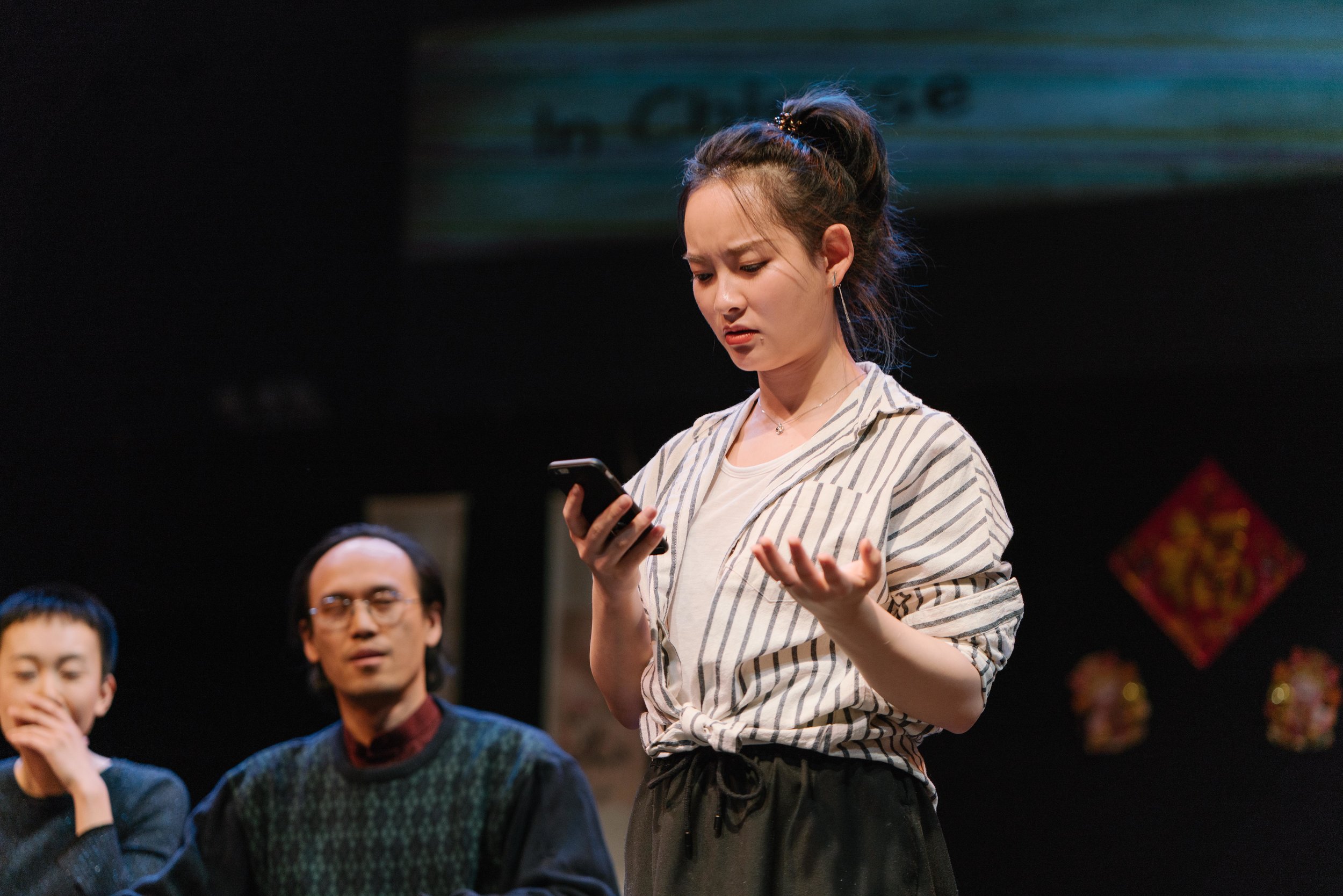
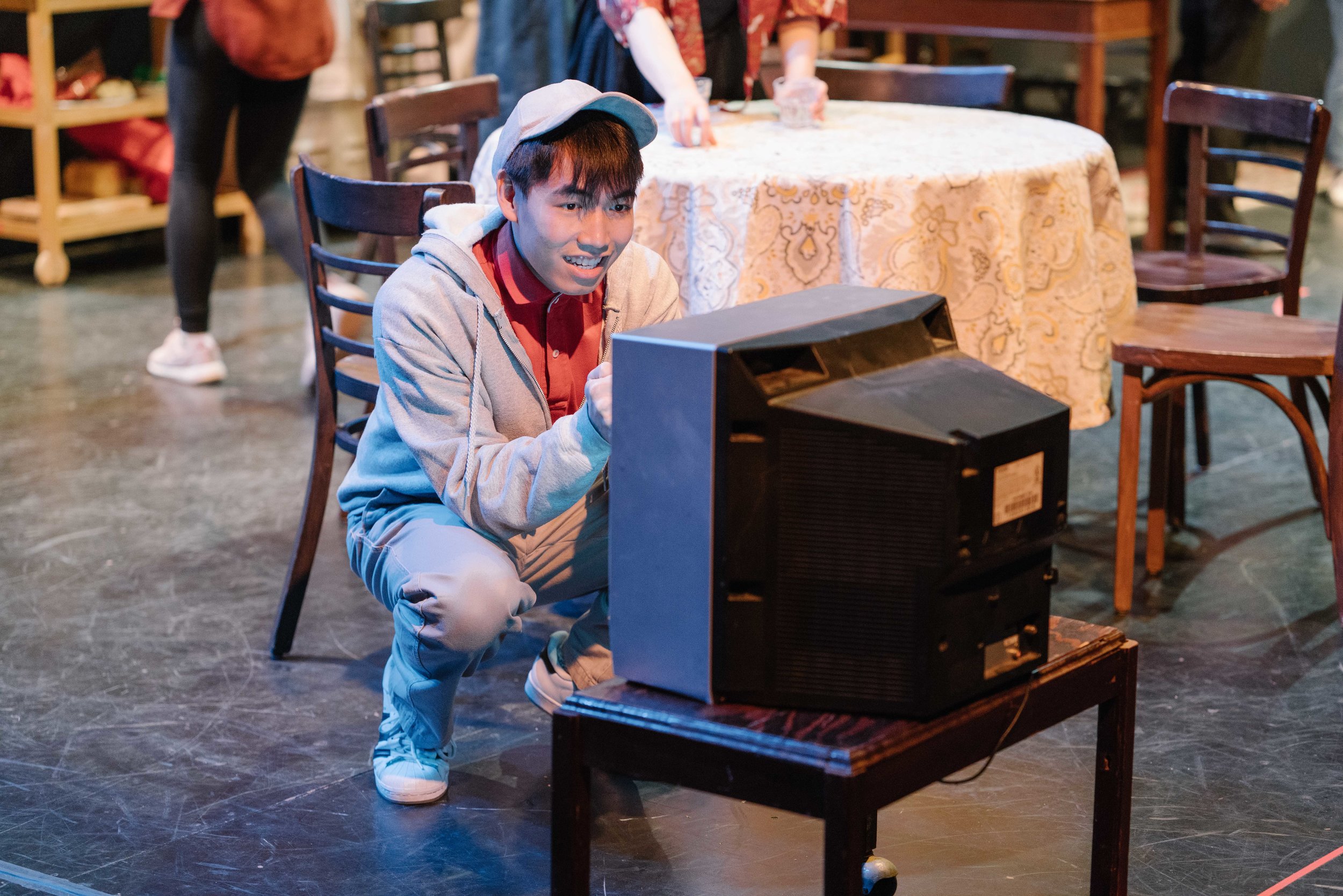

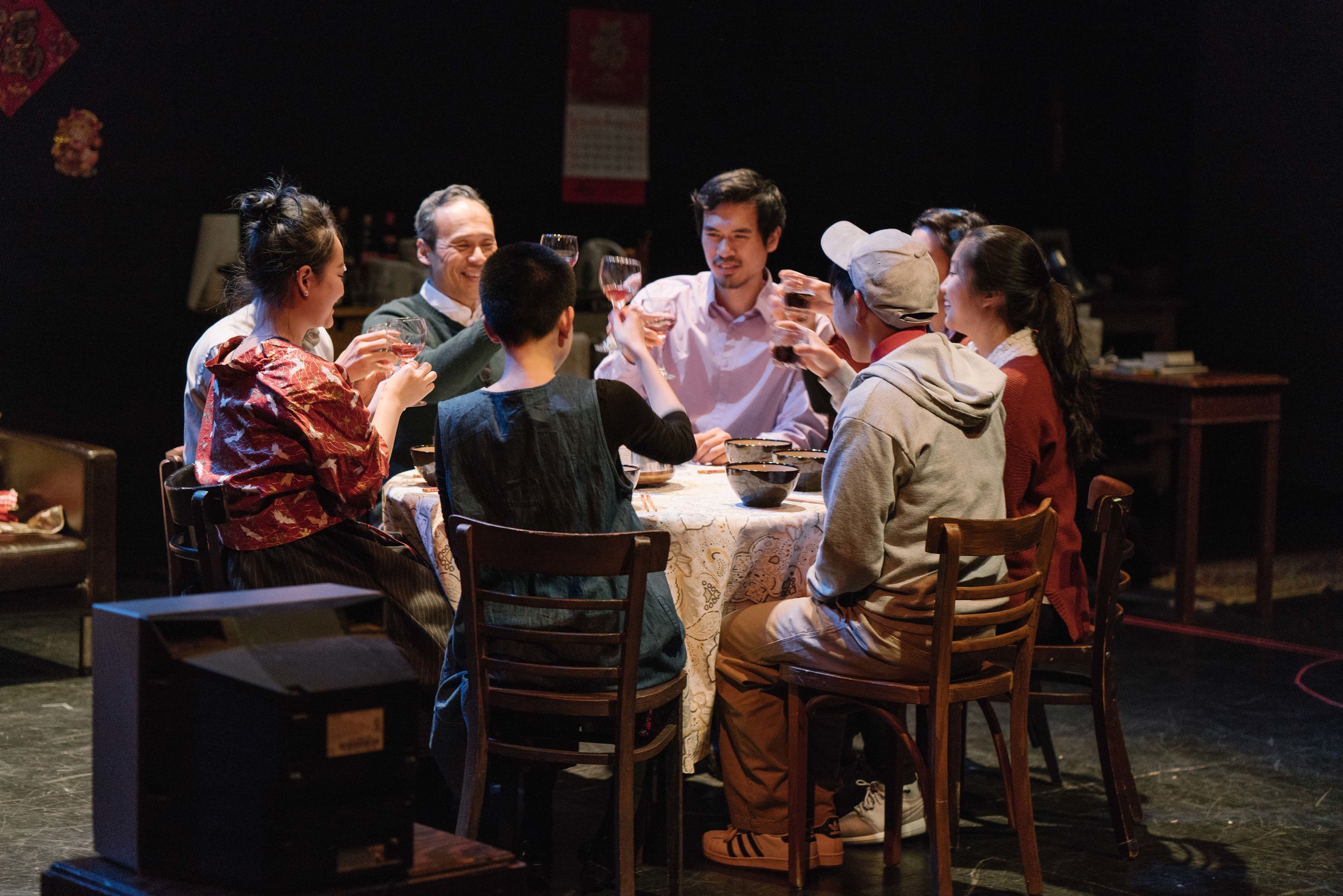
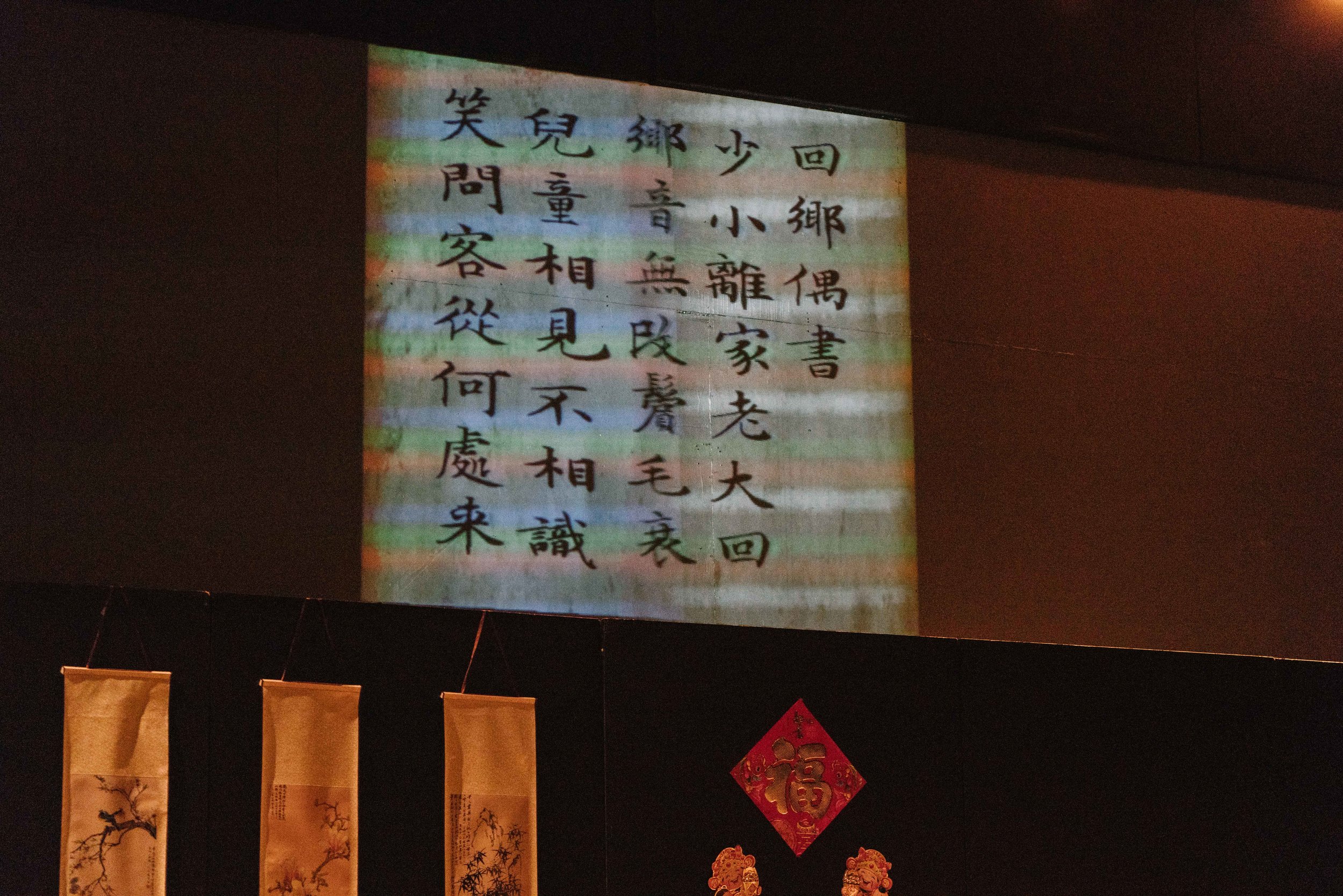

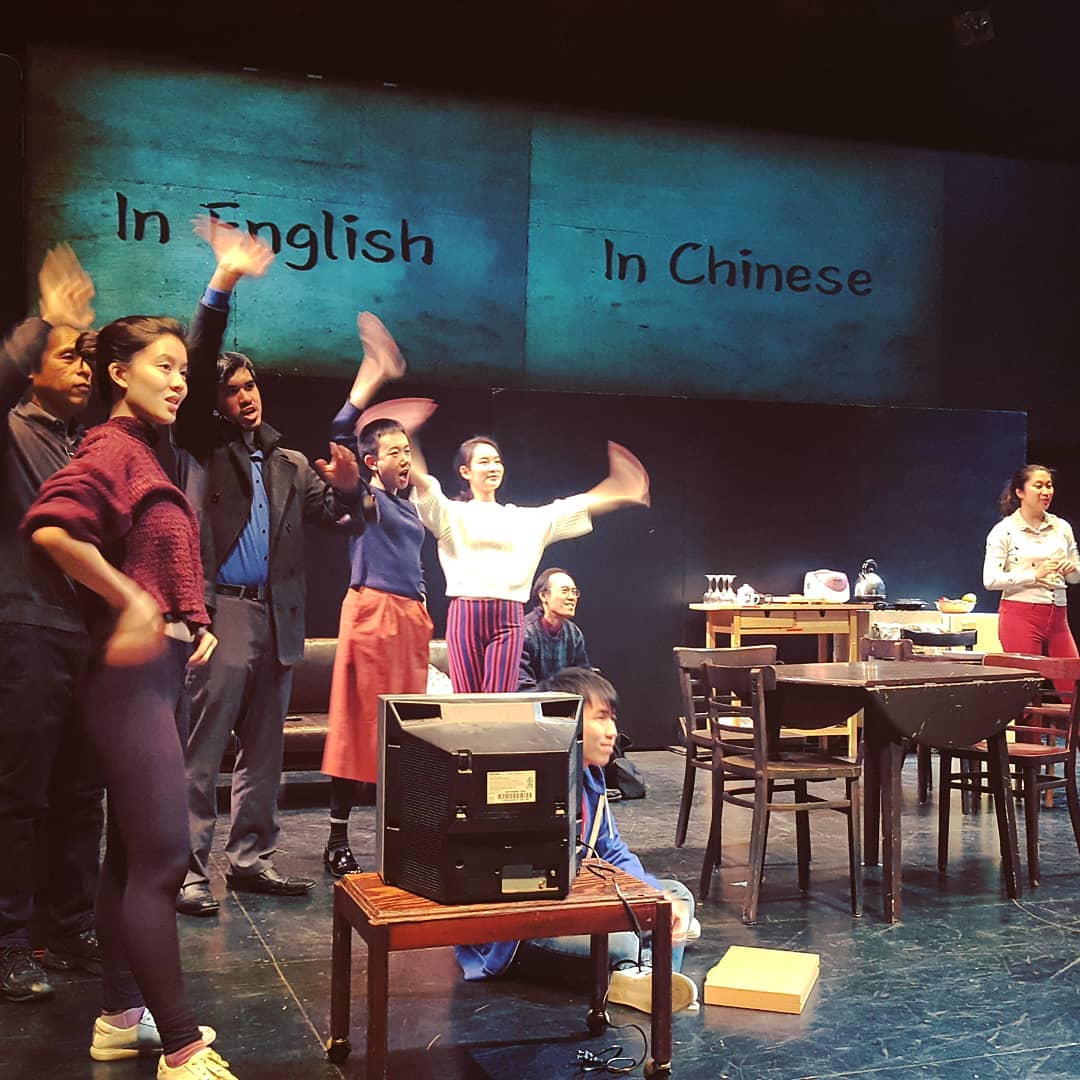
CREATIVE TEAM
director - Noam Shapiro
playwright - Ruoxin Xu
producer - Lucia Xiaoran Zhu
stage manager/assistant director - Cinthia Chen
stage manager - Zhangqiyu Ada Zhang
dramaturg - Annie Wang
scenic designer - Isabel Mengyuan Le & Noam Shapiro
lighting designer - Kelley Shih
projections designer - Colleen Shea
sound designer - Fan Zhang
costume designer - Noam Shapiro
makeup artist - Ruoxin Xu
props master and set dresser- Qing Fang
company manager - Genevieve Yiming Wang
dialect coach - Andy Shen Liu
photo credits - Elvin Hu
ENSEMBLE
Ann Dang (Tang Keren)
Julia Gu (Tang Chao)
Al Patrick Jo (Tang Meng/Dan)
Stefani Kuo (Abby)
Nicholas Leung (Hu Yu)
Matthew Ting (Tang Ze)
Stan Vidal (Tang Desheng)
Lilian Zhang (Wang Weiwei)
SPEAKING AS THEN
Synopsis:
On the eve of Lunar New Year celebrations in Beijing in 2016, Tang Desheng’s children gather in their childhood home to debate the city’s plan to buyout their father’s valuable old apartment. When Dan (Tang Meng), who emigrated to America thirty years earlier after participating in a failed democratic movement, arrives with his American-born daughter, Abby, the family struggles to communicate, and inevitability opens old wounds. Although Abby is curious about her dad’s past, she feels invisible to her relatives since her parents never taught her Chinese. At the same time, the relatives who remained in China wonder what brought Dan back home for the first time in years. After all this time, they have no idea how to express their concerns even though they are speaking the same language. Speaking as Then explores the miscommunication brought on by a language barrier and the familial relationships that transcend spoken words.
Ruoxin Xu's mentors on Speaking as Then were Tony Award-winning playwright David Henry Hwang, Pulitzer Prize-winning playwright Lynn Nottage, and Obie Award-winning playwright Charles Mee.
DRAMATURGY
The title of the play comes from a quatrain written by famed Tang Dynasty poet He Zhizhang. “Homecoming” is one of his most famous poems and is often taught in classrooms, so it would be familiar to the Tang siblings.
回乡偶书
- 贺知章
少小离家老大回,乡音未改鬓毛衰。
儿童相见不相识,笑问客从何处来。
Homecoming
- He Zhizhang
I left home young, I came home old
I speak as I did then, though my hair’s grown thin
A child who did not know me did approach,
Laughing, and asked, “From where do you come?”
This translation is provided by dramaturg Annie Wang and her father Ruyi. The translation is written in freeform to capture the spirit of the play, though the original quatrain would have contained a slanted rhyming scheme.
“Playwright’s Note:
There are always some history lessons that we can never learn from school, so we learn them from our families. SPEAKING AS THEN is a play about how people are affected by the history, how history is passed to the next generation. And of course, it’s a play about family. ”
